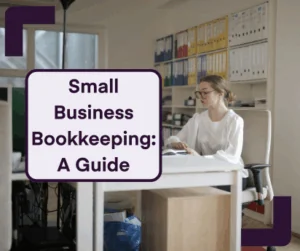
How to invoice your clients and customers
9 Sep 2019Invoicing is known to be the bane of many a small business owners’ existence.
Running a small business effectively, particularly in the earlier stages, puts a huge amount of pressure and demands on an owner’s time.
Naturally, an owner's priorities are the core processes that make a business tick and generate a consistent flow of clients or customers.
As a result, this can mean invoicing is left to evenings and weekends, sometimes long after products have been delivered and services have been fulfilled.
Such a scenario gives an entirely new meaning to the term “risky business”.
With the consequences of poor cash flow being potentially disastrous to a business, it’s essential to put a process in place to make sure invoices are sent out quickly and customers find the paying process straightforward.
As a small business accountant, we have a wealth of experience in working with owner-managed business to help them realise their true potential. Achieving progression and growth is not possible without cash, so nailing your invoicing process is key.
In light of this, our team have put together some sound advice that can help your business put its best foot forward.
Give time to due diligence
Before agreeing to work with new clients and customers, take the time to do some research and carry out the necessary credit checks.
Is the client a new company? If so, check out the Companies House register to make sure there is not a graveyard of failed projects attached to the business owner’s name.
Always agree payment terms
It sounds basic, but owners should always specify exactly when payments must be made.
Standard terms in the UK require payment in 30 days, but some clients may agree to shorter periods such as a week or 10 days.
Owners should create terms and conditions which include the agreed payment term and detail any interest or overdue fees to be charged if payments are late. This will set expectations for both the owner’s business and the new customer.
Be straightforward
When it comes to creating an invoice, keep the layout simple and only include details that are essential to the payment. The faster the client can find the information they need, the more quickly they’re likely to be paid.
An invoice should include a the business’ logo, billing address, contact details, a brief description of the product or service, the acceptable payment methods and the cost.
There should also be a section that includes the previously agreed payment terms and conditions.
Give the customer a choice
Giving customer and clients more than one way to pay is an effective way to speed up a payment.
The extra options will put the client in control of the payment type and help them regulate their own cash-flow.
BACS, credit card, direct debit and PayPal are just a few of the payment types business owners should consider.
Don’t wait around - send invoices immediately
Why wait until two weeks after services have been rendered to send off an invoice?
Routine is the best way to make sure things are not missed in the busy process of running a business.
Owners should create a invoicing schedule which can be applied to each individual invoice.
A schedule means sending invoices on the same day every week, ensuring customers know what to expect, and keeping cash flowing into the company. It also shows businesses in a professional and punctual light.
It’s important to send the invoice to the right person as failing to do so can lead to payment delays. Unsure who the correct person is? Don’t hang around - give the client a quick call.
Tracking invoices
For a small business with just a handful of clients, setting up a simple spreadsheet may be enough to keep up with unpaid invoices.
However, as the company grows, you’ll find it’s much easier and less time consuming to use an invoice tracker system, which is often included as part of a cloud accounting software such as Xero.
This will collate all the invoice information in one place and provide alerts when payments are due.
As one of the few Platinum Xero Partners, the team at Accounts and Legal form the country’s leading Xero accountant.
We are experts in implementing the software, from the early stages of training our clients to breaking down data and giving you advice that will help your business outperform its competitors.
Get in touch with our team to speak more about how Xero can help you to further your business, or try our instant accounting quote tool and get a fee in just five clicks.






















